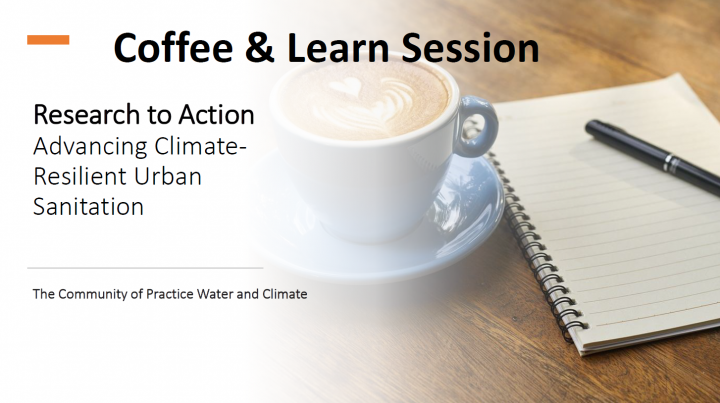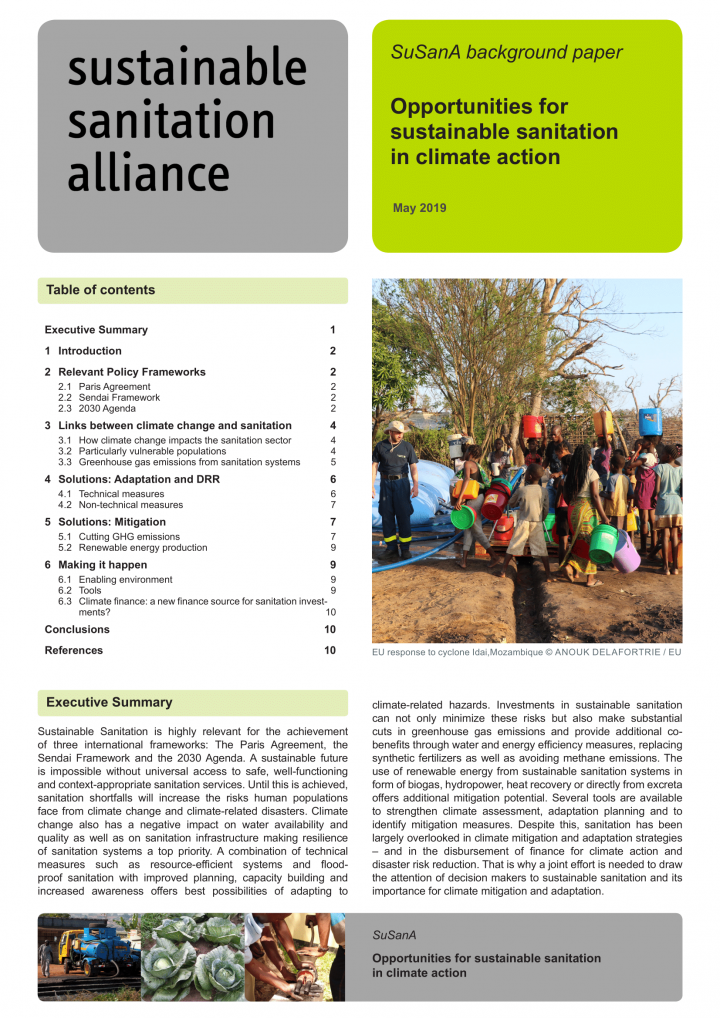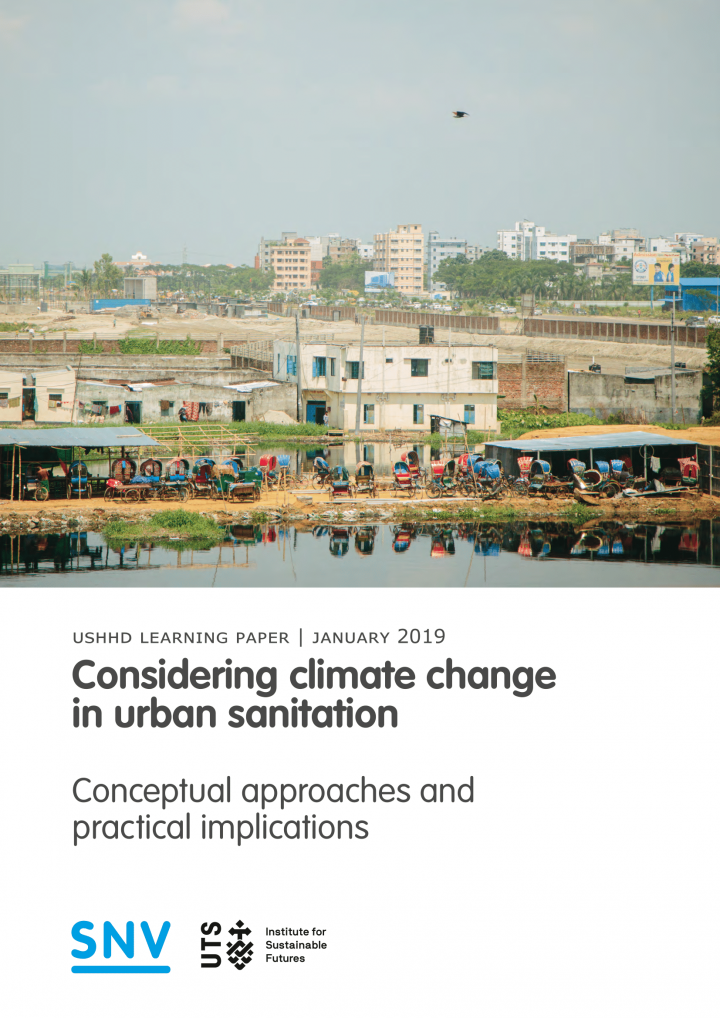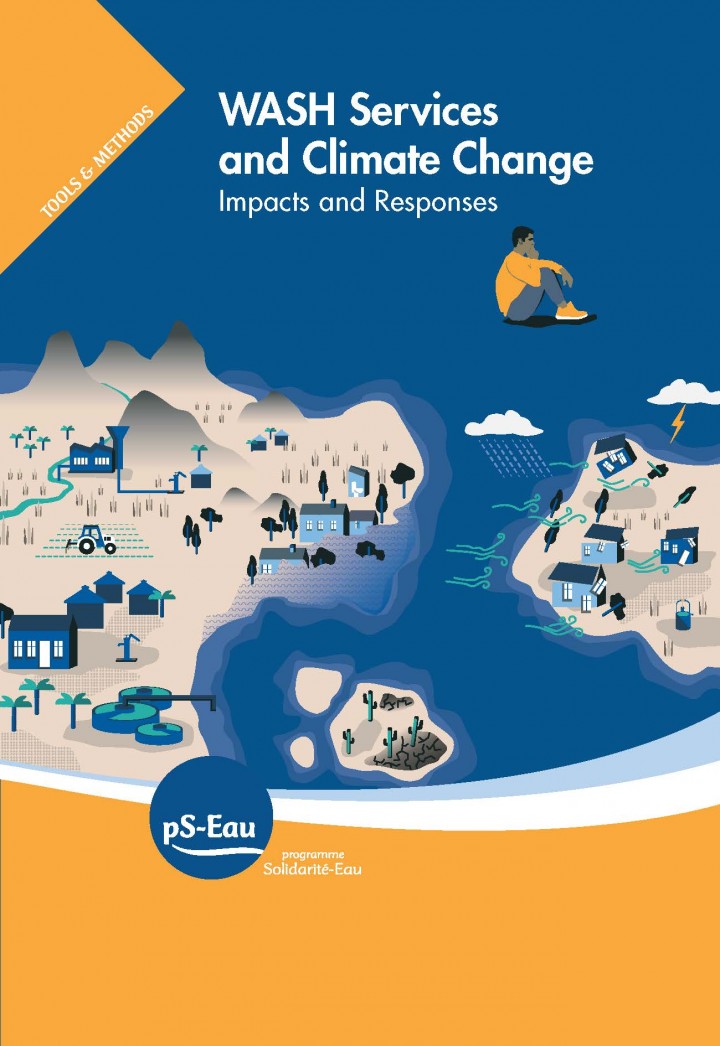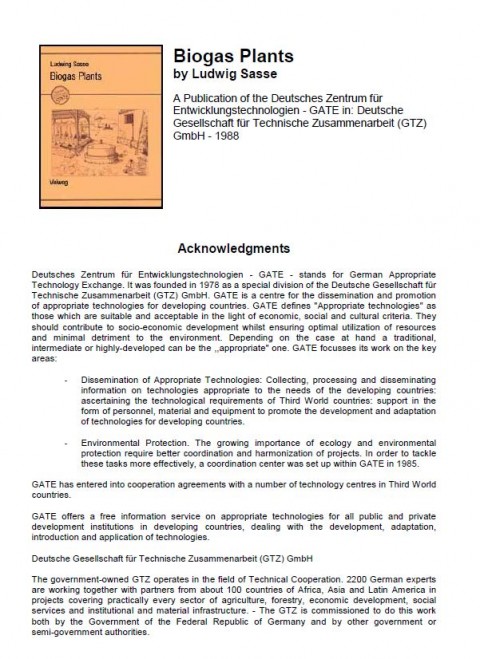Background
A sustainable future is impossible without universal access to safe, well-functioning and context-appropriate sanitation services. Until this is achieved, sanitation shortfalls will increase the risks human populations face from climate change and climate-related disasters. Climate change also has a negative impact on water availability and quality as well as on sanitation infrastructure making resilience of sanitation systems a top priority.
A combination of technical measures such as resource-efficient systems and floodproof sanitation with improved planning, capacity building and increased awareness offers best possibilities of adapting to climate-related hazards. Investments in sustainable sanitation can not only minimize these risks but also make substantial cuts in greenhouse gas emissions and provide additional co-benefits through water and energy efficiency measures, replacing synthetic fertilizers as well as avoiding methane emissions. The use of renewable energy from sustainable sanitation systems in form of biogas, hydropower, heat recovery or directly from excreta offers additional mitigation potential.
However, new approaches require innovative forms of cross-sectoral collaboration and facilitating normative frameworks. Several tools are already available to strengthen climate assessment, adaptation planning and to identify mitigation measures. Despite this, sanitation has been largely overlooked in climate mitigation and adaptation strategies – and in the disbursement of finance for climate action and disaster risk reduction. That is why joint efforts are needed to draw the attention of decision makers to sustainable sanitation and its importance for climate mitigation and adaptation.
Objectives
The objective of this working group is to raise the awareness, that climate change needs to be considered more systematically in the design and operation of sanitation systems. This includes the energy and resource efficiency of sanitation systems, which directly impacts their greenhouse gas footprint and their potential for improved climate adaptation. The resilience of sanitation systems to climate risks also plays an important role here.
Activities
- The working group has prepared a
- WG background paper on "Opportunities for sustainable sanitation in climate action"
- and a collaboration paper called "Shaping the water sector to be more climate resilient"
- We want to encourage the exchange on climate change topics between sanitation and climate experts – if you are interested, please join the working group and get in contact with us.
Working Group Leads
Thorsten Reckerzügl
German Toilet Organization • Germany
Sören Rüd
GIZ • Germany
Working Group Co-Lead
Martin Kerres
GIZ • Germany
